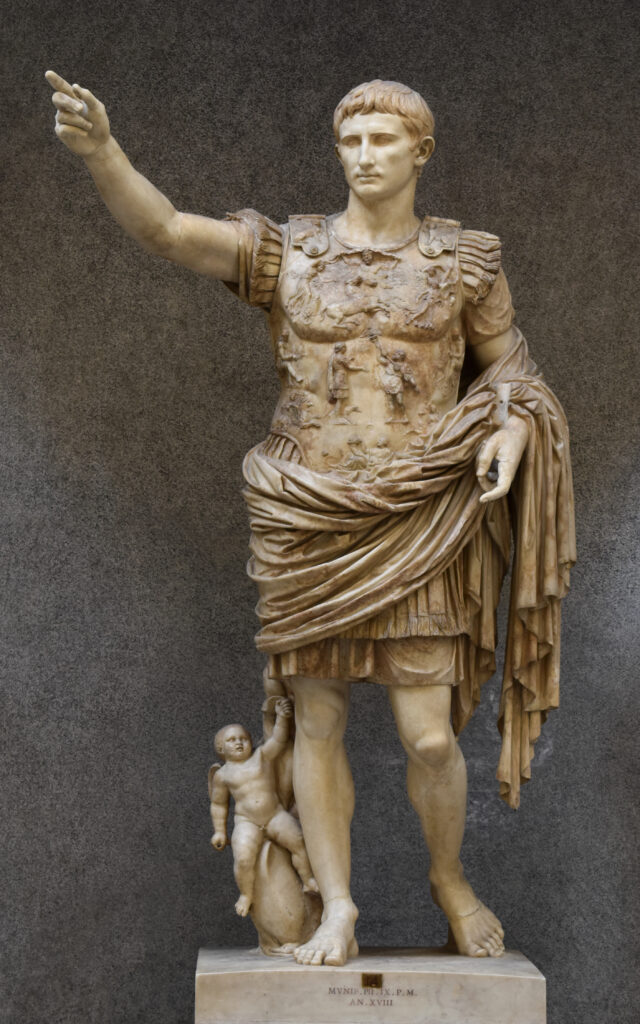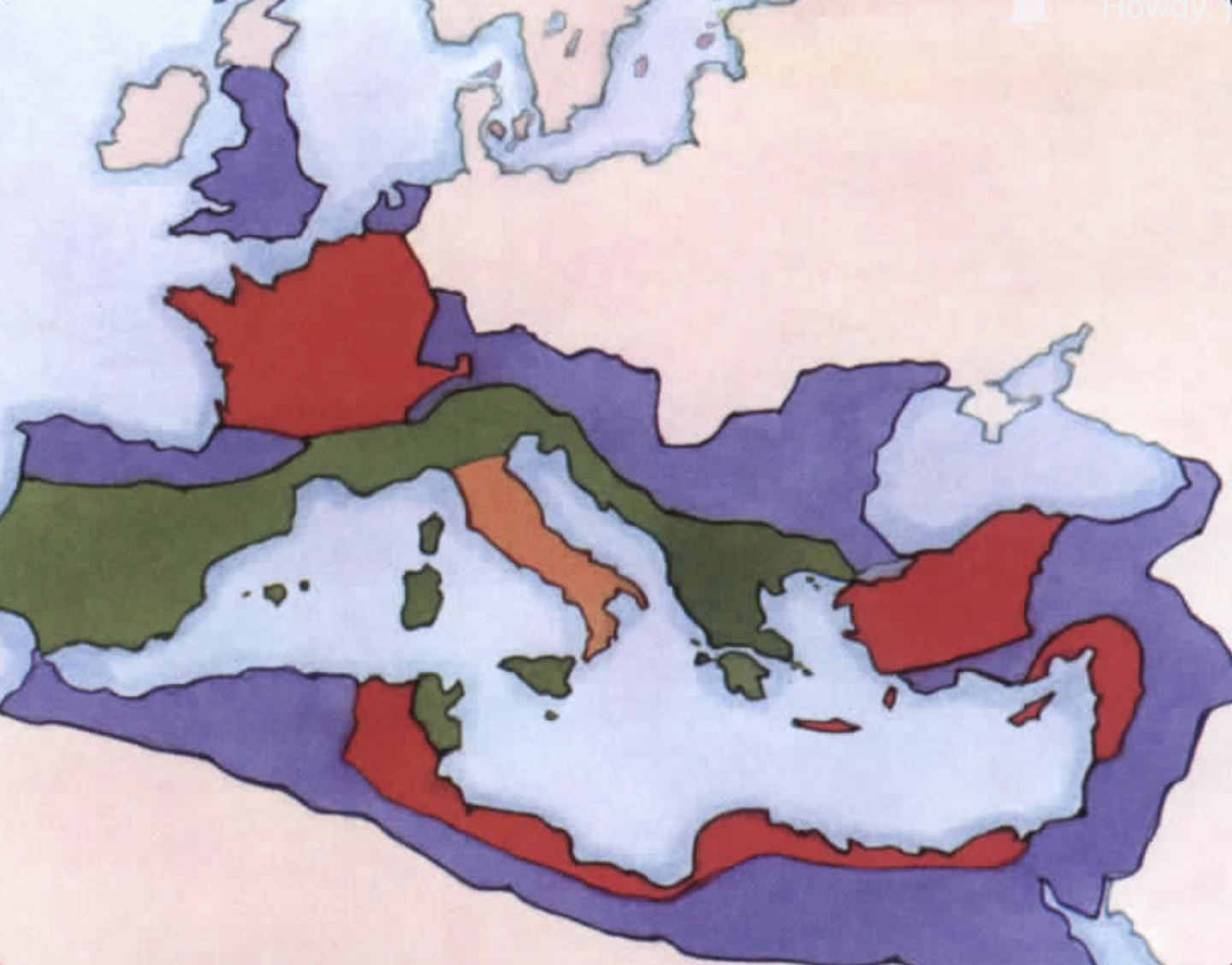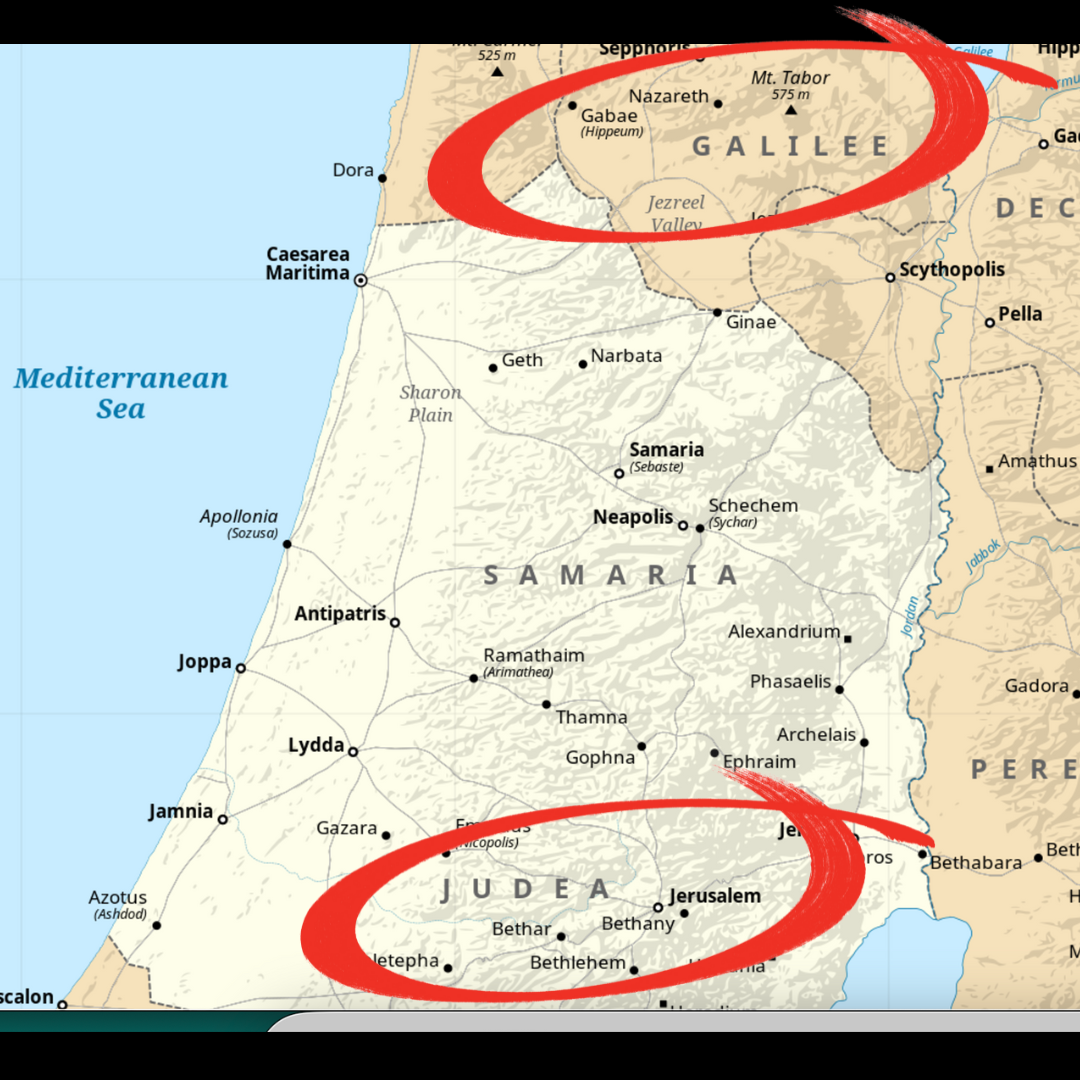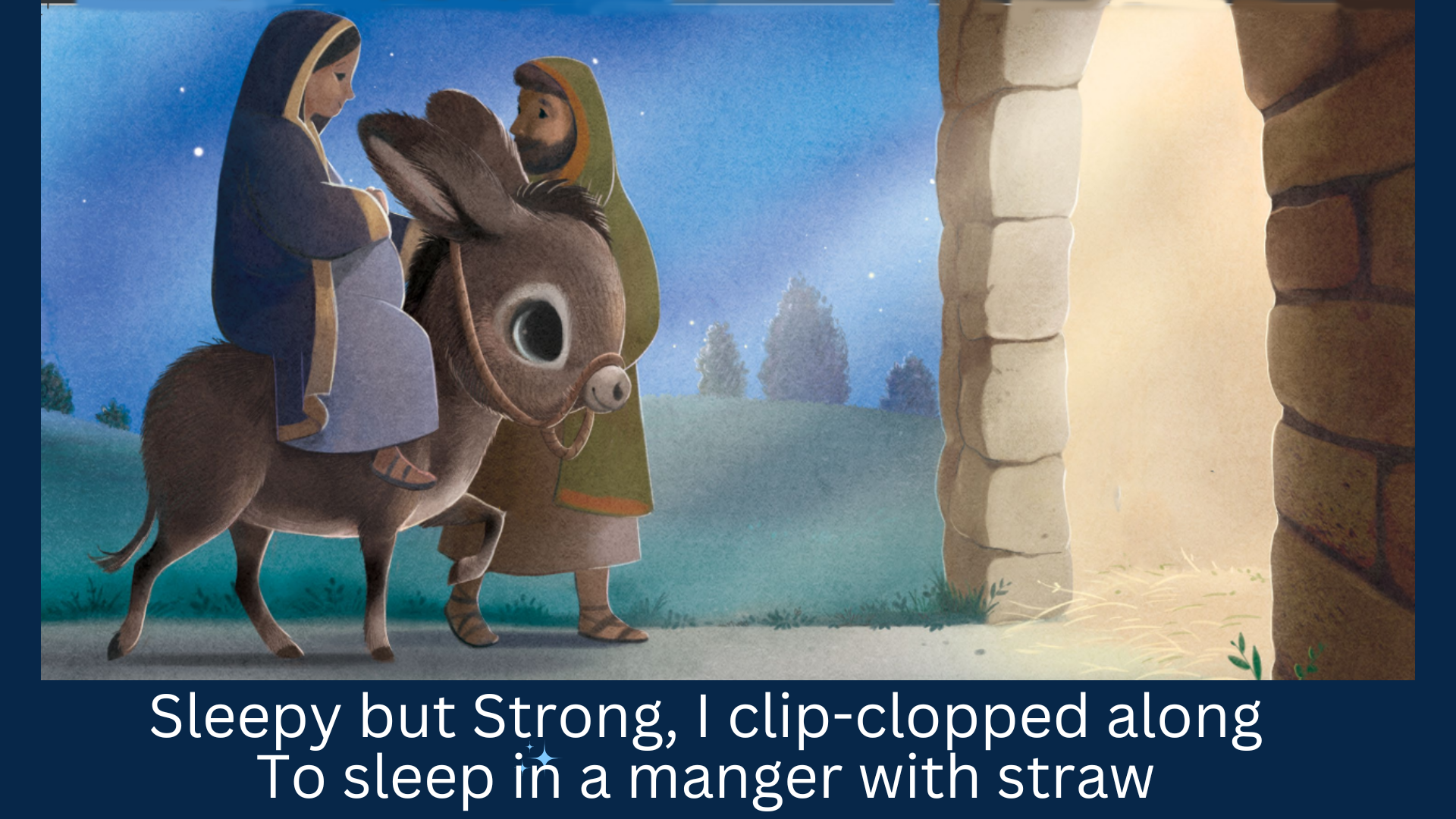
Image Credit: Wikipedia
Caesar Augustus was the first emperor of the Ancient Roman Empire, a vast region that included the Bible Lands across the Mediterranean Sea.

Rome is located in the yellow boot-like shape in the above map. Julius Caesar was Caesar Augustus’s uncle, and he conquered most of the lands in the above map. When Julius Caesar died, Caesar Augustus inherited the leadership of Ancient Rome and its conquests under Julius Caesar. Caesar Augustus conquered more lands, but the wars to do so were costly. To pay for this expansion, Caesar Augustus levied harsher taxes. And that was the situation at the beginning of the story of the birth of Jesus.
Luke Chapter 2
Caesar Augustus Ordered that Everyone Report to the Lands of Their Forefathers for Purposes of Taxation
2 And it came to pass in those days that a decree went out from Caesar Augustus that all the world should be registered. 2 This census first took place while Quirinius was governing Syria. 3 So all went to be registered, everyone to his own city. Luke 2: 1-3 New King James Version of the Bible
in the King James Bible, Quirinius was called Cyrenius, and this man was also a Roman.
2 And it came to pass in those days, that there went out a decree from Caesar Augustus that all the world should be taxed.
2 (And this taxing was first made when Cyrenius was governor of Syria.) Luke 2: 1-2 New King James Version of the Bible
In the first chapter of Luke, an angel told the young lady named Mary that she would carry the Baby Jesus. Mary was engaged to Joseph, but they were not married yet. Joseph, Mary’s betrothed, was a descendant of King David. To comply with the demands of Caesar Augustus, Joseph and his betrothed wife Mary traveled to Bethlehem–the homeland of King David — or the City of David.
4 Joseph also went up from Galilee, out of the city of Nazareth, into Judea, to the city of David, which is called Bethlehem, because he was of the house and lineage of David, 5 to be registered with Mary, his betrothed [a]wife, who was with child. Luke 2:4-5

Joseph and Mary lived in the City of Nazareth — in Galilee. They traveled from Nazareth in Galilee to Bethlehem.
That trip required at least 5 days of travel for Mary and Joseph. Mary rode a donkey. She was nearing the birth of her Baby — Jesus. No doubt, that journey was difficult for Mary. Apparently, Joseph walked beside her.

from The Donkey’s Song by Jacki Kellum
“So this particular Christmas sets one careering back a little, to look at that mysterious connection of Rome with Christianity, which has held on so steadily since the first Christmas got itself put on historical record by a Roman census-maker. Humanly speaking, it was nothing more nor less than a Roman census which makes the word Bethlehem to be a sacred word over all the world to-day. To any person who sees the humorous contrasts of history there is reason for a bit of a smile when he thinks of the way this census came into being, and then remembers what came of it. Here was a consummate movement of Augustus, who would fain have the statistics of his empire. Such excellent things are statistics! “You can prove anything by statistics,” says Mr. Canning, “except—the[234] truth.” So Augustus orders his census, and his census is taken. This Quirinus, or Quirinius, pro-consul of Syria, was the first man who took it there, says the Bible. Much appointing of marshals and deputy-marshals,—men good at counting, and good at writing, and good at collecting fees! Doubtless it was a great staff achievement of Quirinus, and made much talk in its time. And it is so well condensed at last and put into tables with indexes and averages as to be very creditable, I will not doubt, to the census bureau. But alas! as time rolls on, things change, so that this very Quirinus, who with all a pro-consul’s power took such pains to record for us the number of people there were in Bethlehem and in Judah, would have been clean forgotten himself, and his census too, but that things turned bottom upward. The … child born in Bethlehem when this census business was going on happened to prove to be King of the World. It happened that he overthrew the dynasty of Cæsar Augustus, and his temples, and his empire. It happened that everything which was then established tottered and fell, as the star of this child arose. And the child’s star did rise. And now this Publius[235] Sulpicius Quirinus or Quirinius,—a great man in his day, for whom Augustus asked for a triumph,—is rescued from complete forgetfulness because that baby happened to be born in Syria when his census was going on!” Hale, Edward E. Ten Stories of Christmas. 1873.
Nero Burned Rome
“I always liked to think that some day when Augustus Cæsar was on a state visit to the Temple of Fortune some attentive clerk handed him down the roll which had just come in and said, “From Syria, your Highness!” that he might have a chance to say something to the Emperor; that the Emperor thanked him, and, in his courtly way, opened the roll so as to seem interested; that his eye caught the words “Bethlehem—village near Jerusalem,” and the figures which showed the number of the people and of the children and of all the infants there. Perhaps. No matter if not. Sixty years after, Augustus’ successor, Nero, set fire to Rome in a drunken fit. The Temple of Fortune caught the flames, and our roll, with Bethlehem and the count of Joseph’s possessions twisted and crackled like any common rag, turned to smoke and ashes, and was gone. That is what such statistics come to!
6 So it was, that while they were there, the days were completed for her to be delivered. 7 And she brought forth her firstborn Son, and wrapped Him in swaddling cloths, and laid Him in a [b]manger, because there was no room for them in the inn. Luke 2L 6-7

Discover more from Jacki Kellum
Subscribe to get the latest posts sent to your email.